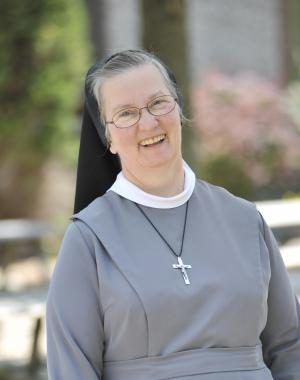Jesus Proclaims the Gospel of Salvation
Sr. M. Johanna Paruch, FSGM, Ph.D.
Schedule
These presentations are meant to assist the teachers in the Archdiocese to bring Jesus to the students they instruct, and bring the students they instruct to Jesus. The morning is divided into four of the essential components that make up the catechetical ministry of the Church, to follow Jesus’ command to go and make disciples (Matthew 28:19). The presentations rely on the guidance of the Directory for Catechesis, promulgated in 2020.
Keynote Speaker
Sr. M. Johanna Paruch, FSGM, Ph.D.
Sister M. Johanna Paruch, FSGM, Ph.D. is a Sister of St. Francis of the Martyr St. George. She is a native of Nova Scotia, Canada.
She holds a BA in Theology and Elementary Education from St. Louis University, an MA in Catechetics from the Angelicum, and a Ph.D. from Maryvale Institute, UK. In addition, she holds an undergraduate degree in Deaf Communication.
She has been involved in education and religious education at every capacity, at every level and audience for over 40 years, including ministry to the Deaf.
Sr. M. Johanna has taught Theology and Catechetics at Franciscan University of Steubenville since 1999, teaching both Graduate and Undergraduate students. In addition, she has spoken extensively about catechetics in both Catholic schools and parishes, including catechesis for persons with special needs, throughout the United States and Canada.


